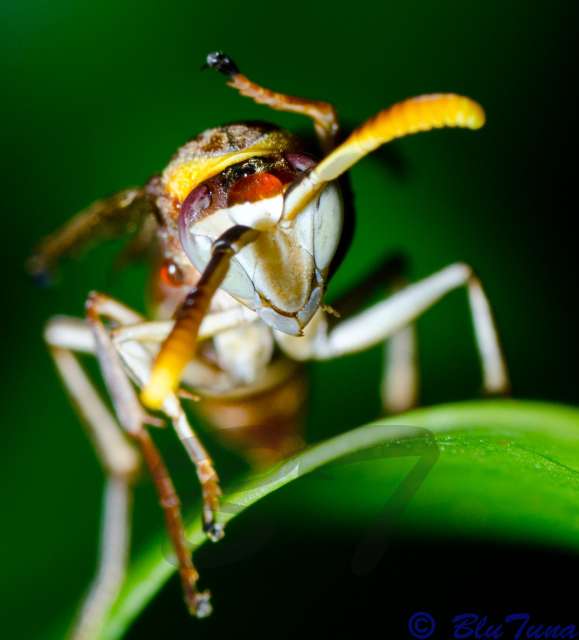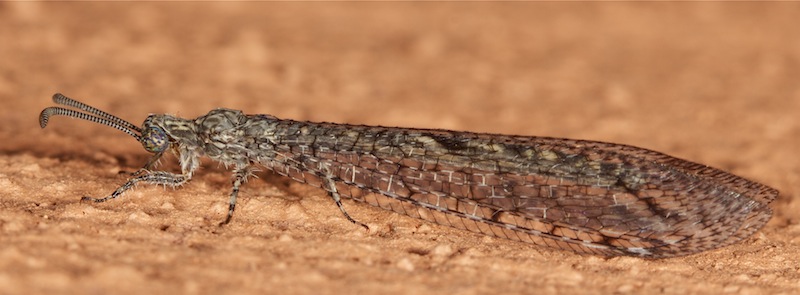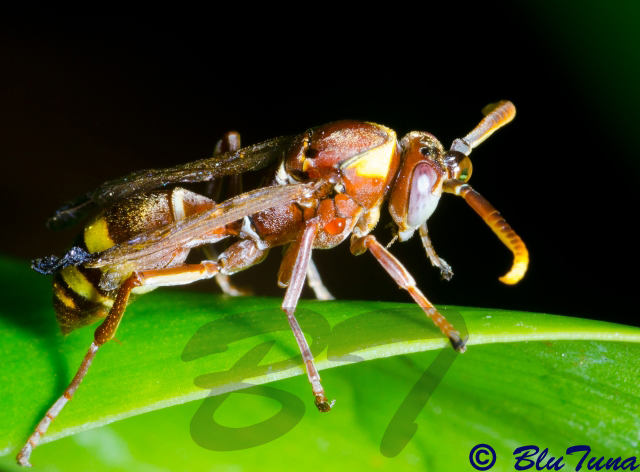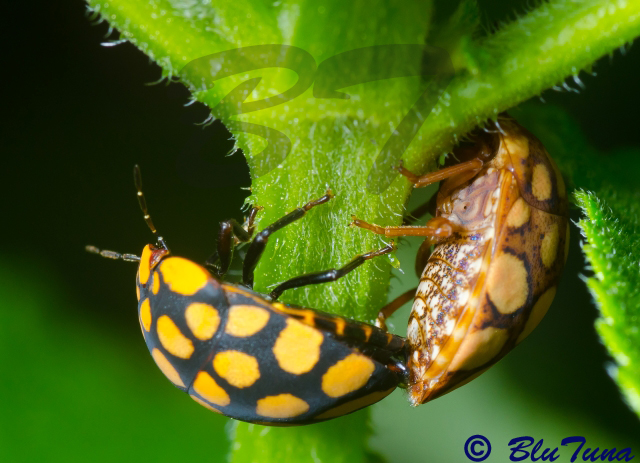Page 56 of 295
Re: Insect or Invertebrates Identification
Posted: Mon Feb 17, 2014 9:45 pm
by BluTuna
Maybe not. The examples of P. fastidiousus on the link don't have the yellow patches on the thorax shoulders and the face looks completely different...

Re: Insect or Invertebrates Identification
Posted: Mon Feb 17, 2014 10:59 pm
by Toko
Some species have variable facial patterns from individual to individual and are able to recognize faces. No joke
 http://www.sciencedaily.com/releases/20 ... 142756.htm
http://www.sciencedaily.com/releases/20 ... 142756.htm
But you are probably right and it is one of the other species

Re: Insect or Invertebrates Identification
Posted: Tue Feb 18, 2014 1:54 am
by ExFmem
Toko,
I posted a new entry for spoon-wing lacewings just as a subfamily sp. (as was suggested for my jumping spiders), as it is definitely not the same as nan's. Hope that's okay.

Also, I had posted earlier a bark antlion to be added as you see fit....


What's the verdict on that one, do I need to go back to the drawing board?

Your last reference/link for my unknowns was wonderful

, but if I had a rand for every species I looked at on that site I'd be able to take TWO trips to SA this year. And I came up emply handed


and even more confused.

The world needs more entomologists and less politicians



Re: Insect or Invertebrates Identification
Posted: Tue Feb 18, 2014 7:55 am
by Toko
ExFmem wrote:
Also, I had posted earlier a bark antlion to be added as you see fit....


What's the verdict on that one, do I need to go back to the drawing board?

I am still thinking, ExFmem

Re: Insect or Invertebrates Identification
Posted: Tue Feb 18, 2014 9:02 am
by BluTuna
Isn't it amazing science can reveal!
Re: Insect or Invertebrates Identification
Posted: Tue Feb 18, 2014 3:22 pm
by Toko
ExFmem wrote:Bark Antlion to be added please:

Oct. 2013 Kgalagadi
I assume this to be a
Syngenes sp. due to wings with pointed tips as opposed to rounded ones as in
Centroclisis, as well as the banding on the legs and abdomen.
However you wish to add it is fine by me, Toko. Thanks!



There is only one Syngenes sp in the checklist and this is the only phtoto I found: Syngenes longicornis
http://www.google.de/imgres?espv=210&es ... CFgQrQMwAQ
Re: Insect or Invertebrates Identification
Posted: Tue Feb 18, 2014 4:41 pm
by ExFmem
Toko,
Since the current entry for Bark Antlion is generic, perhaps it's best to just add it w/ the location info.

Re: Insect or Invertebrates Identification
Posted: Tue Feb 18, 2014 4:54 pm
by Toko
I am somewhat confused.
Must all bark antlions have hairy legs?
This one has less hairy legs than the pics I have seen on the www

Re: Insect or Invertebrates Identification
Posted: Tue Feb 18, 2014 5:06 pm
by Toko
Re: Insect or Invertebrates Identification
Posted: Tue Feb 18, 2014 5:21 pm
by wynand
Some confirmations or, at least, agreements and two suggestions:
The armoured darkling beetle:
Anomalipus, yes! But not A. elephas, which is a bit more robust and has more ridges on the elytra. This is a diverse genus in SA and I can't offer any help beyond genus.
Penculate ground beetle:
Scaritinae. Agreed!
Garden orb spider
Argiope australis Agreed!
The "Pretty big ant"
Fantastic photograph!
Camponotus maculatus,Spotted sugar ant. See Picker et al. 2010: p. 426 no.4
I agree with the wasp genera but can't comment on species.
The " mating beetles that looked like oversized Ladybirds...."
Are bugs and, yes, they do look like supersized ladybirds. In fact, the'yre called the "ladybird bug".
Scutelleridae (Shield-backed bugs) : Steganocerus multipunctatus (Picker et al. 2010: p134 no.2)
Edit: Toko, you beat me to it. I agree then.



